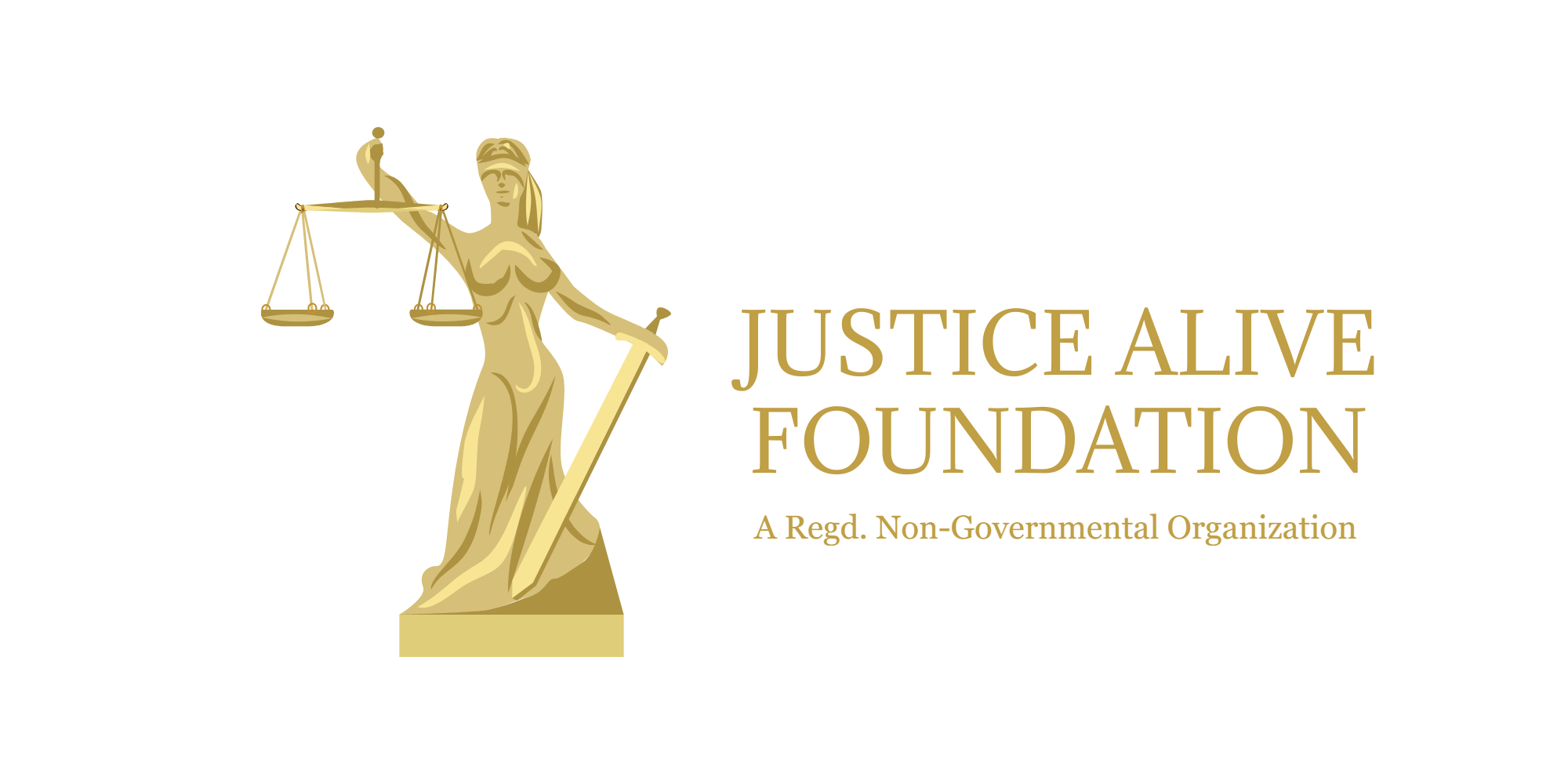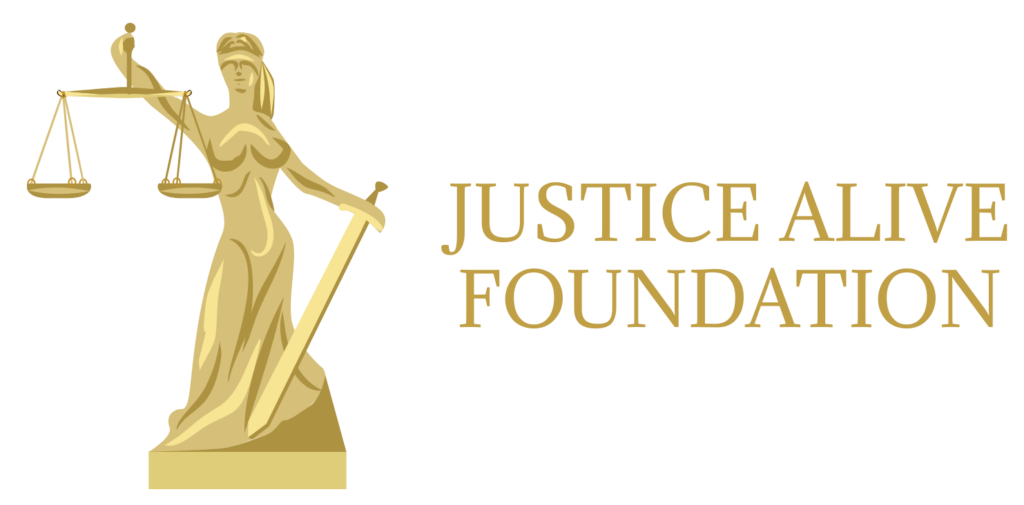
Information Technology and Data Protection in India
This article has been written by Ms. Abhiruchi Kumari.
INTRODUCTION
Information technology (IT) is transforming industry, communication, and societal relationships in the modern world. It is impossible to stress the importance of effective information technology management in this digital era. However, complex legal frameworks designed to regulate digital operations, data protection, and internet governance go hand in hand with this revolution. The Information Technology Act of 2000 and the upcoming Personal Data Protection Bill are two examples of important laws that India, a rising digital superpower, has put in place to guide its digital landscape. These legal pillars help to regulate cyberspace, protect private data, and defend the values of free expression while also addressing the problems brought on by a world that is becoming more interconnected.
India’s digital governance is anchored by the Information Technology Act, 2000. This legislation cleared the door for the digital revolution because it was created to control cyber security, enable e-governance, and offer legal recognition for electronic transactions. Through the use of digital signatures, it enables formal transactions and addresses cybercrimes and associated punishments. Its requirements also recognize the authenticity of electronic communication. In order to protect data, combat cyber threats, and define the duties of intermediaries in the digital ecosystem, sections like 43A, 66B, and 79 are essential.
Digital platforms and intermediates that support communication, content distribution, and online commerce are at the center of this ecosystem. These organizations, including social networking platforms, e-commerce sites, and search engines, are crucial in determining the nature of the digital experience. Section 79 of the Information Technology Act requires due diligence while granting these intermediaries a limited immunity for third-party material. In order to maintain a responsible and secure online environment, it is essential to strike a balance between freedom of expression and content regulation. While enhancing worldwide connectedness, the development of digital platforms has also given rise to worries about data privacy, false information, and cyber threats. In response, the Indian government unveiled the Personal Data Protection Bill, which follows international trends like the General Data Protection Regulation of the European Union. The measure outlines concepts including transparency, purpose limitation, data minimization, and responsibility in an effort to protect personal data. Notably, the law calls for the creation of a Data Protection Authority, demonstrating India’s dedication to strengthening data protection regulations.
Dealing with multiple problems is necessary to navigate this environment. It is crucial to strike a balance between technical advancement and data protection, guarantee fair access to digital resources in both urban and rural areas, and promote cooperation between business, the government, and civil society. Because of how quickly technology is developing, legal frameworks must be flexible enough to respond quickly to new dangers and opportunities.
The fusion of regulatory frameworks, technical breakthroughs, and societal needs will form the future landscape as India’s digital journey progresses. It will be crucial to work towards a balance between democratic principles and information technology management, data protection, and internet regulation. India can take advantage of the potential presented by the digital age by promoting innovation, enhancing data privacy, and building a flexible yet stable legal framework. India can not only lead the world in digital governance by managing this challenging environment, but it can also set an example for other countries embracing the digital revolution. A secure, forward-thinking, and inclusive digital future will be paved by the careful balancing of legal expertise, technological prowess, and societal involvement in this digital horizon.
INFORMATION TECHNOLOGY MANAGEMENT
In the current digital era, information technology (IT) management is crucial in determining how enterprises, communications, and social interactions are shaped. The legal framework that oversees digital operations, data protection, and internet rules is an essential component of IT administration. The Information Technology Act of India, together with its important clauses, and the functions and accountability of IT intermediaries and digital platforms, are essential elements of this digital horizon.
The Information Technology Act, 2000, also known as the IT Act, was designed to regulate cyber security and data protection in India, enable e-governance, and offer legal recognition for electronic transactions. The creation of a regulatory framework for many facets of digital communication and transactions is one of its standout features. The Act permits the use of electronic channels for official communications and transactions by recognizing electronic documents and digital signatures. Additionally, it discusses cybercrimes and associated punishments, defending people and organizations against online threats and assaults.
The Information Technology Act’s key components are crucial for guaranteeing the efficient operation of the digital ecosystem. Organizations are required to secure the personal data they gather because Section 43A of the Act deals with penalties for failing to protect sensitive personal data. To prevent unauthorized access to digital resources, Section 66B covers the crime of dishonestly acquiring stolen computer resources or communication equipment. Additionally, Section 79 establishes the legal framework for intermediaries and shields them from liability for third-party content while simultaneously imposing requirements on them to exercise due diligence.
Digital platforms and IT intermediates have become important stakeholders in the digital sphere, supporting content distribution, online commerce, and communication. These middlemen consist of internet service providers such as search engines, social networking platforms, and e-commerce websites. Section 79 of the IT Act, which offers them conditional exemption from liability for third-party content, specifies their tasks and obligations. However, they must follow specific due diligence procedures in order to maintain this protection. When given notice, intermediaries are expected to remove illegal content and take action to stop the spread of offensive information.
Information diffusion and user interaction are significantly impacted by digital platforms, working with IT intermediaries. People may communicate, share ideas, and express themselves globally thanks to social media networks. E-commerce platforms give companies the chance to reach a wider audience and give customers a pleasant buying experience. Search engines help people find content in huge digital archives. However, worries about false information, hate speech, data breaches, and privacy violations have also arisen as a result of the quick development of digital platforms.
The Information Technology Act has been amended by the Indian government in response to these worries. The proposed revisions seek to increase intermediaries’ accountability, compel them to track down the source of illegal content, and provide a procedure for handling complaints. These amendments aim to find a compromise between the necessity to rein in destructive online behavior and the right to free speech. Debatable topics include the potential impact on user privacy and the ability of small enterprises to abide by these rules.
As a result, information technology management in India involves a sophisticated interaction of judicial guidelines, digital infrastructure, and data security measures. By allowing secure transactions, defending against cyber threats, and regulating the digital domain, the Information Technology Act, with its key sections, establishes the framework for the digital landscape. Digital platforms and IT intermediaries are essential for connecting people, sharing information, and promoting economic progress. While they have a limited immunity from culpability, they are nevertheless required to exercise due care. The IT Act is constantly being updated to reflect the dynamic nature of the digital world and to handle new challenges while ensuring a secure and responsible online environment. Effective IT administration in this digital age necessitates striking a delicate balance between innovation, security, and regulatory considerations.
DATA PROTECTION MEASURES
The administration and protection of personal data have emerged as crucial challenges in an increasingly digital environment, inspiring the creation of comprehensive legislation like the Personal Data Protection Bill (PDPB) in India. The PDPB attempts to address concerns about data privacy and establish requirements for organizations handling personal data. This legislation represents a global movement to strengthen data protection regulations in order to protect people’s privacy in the digital era.
India’s Personal Data Protection Bill aims to establish a legal framework for the gathering, handling, and storage of personal data while guaranteeing the protection of people’s rights. It is influenced by worldwide data protection legislation as well as international privacy standards like the General Data Protection Regulation (GDPR) in the European Union. The PDPB’s development of guidelines that organizations must follow when handling personal data is one of its major effects. Transparency, purpose restriction, data minimization, accuracy, storage restriction, and accountability are all part of these concepts.
Data protection is based on the principle of transparency, which calls for organizations to notify people about how their data is being collected and processed. Limiting the usage of data guarantees that information is only acquired for intended reasons and guards against its exploitation. Only information that is pertinent and necessary should be gathered, according to data minimization. Accuracy demands that the information gathered be true and current. Data retention is limited by storage constraints after the requisite time has passed. Accountability requires organizations to show that they are in compliance with data protection laws.
The PDPB has wide-ranging effects on numerous parties, including corporations, governmental agencies, and people. To maintain legal compliance, businesses must now make substantial investments in their data protection infrastructure. In order to manage data protection efforts, they must also hire Data Protection Officers (DPOs). Additionally controlled are cross-border data transfers, who call for contracts between the parties transferring the data and those, receiving it. Significant fines may be imposed for breaking the PDPB, encouraging rigorous adherence to the rule.
The GDPR of the European Union stands out as a complete framework when compared to the PDPB and other international data protection laws. The GDPR gives people more control over their data and mandates explicit consent before any data is processed. It also establishes severe penalties for non-compliance and requires the appointment of Data Protection Officers. Similar to this, nations with their own data protection laws, like Canada, Australia, and Japan, ensure the ethical and legal processing of personal data.
Legal frameworks and technological solutions are used to address concerns about data privacy. Data security is greatly aided by encryption, anonymization, and secure authentication techniques. To find and fix any flaws in data handling systems, regular security audits and vulnerability assessments are necessary. Equally important to preventing internal data breaches is fostering a culture of data privacy awareness among employees.
Under the PDPB, entities managing personal data are subject to a number of requirements. Before processing personal data, they must seek express consent from the data subject and give them the chance to revoke that consent at any time. Notifications of data breaches must be made as soon as possible to the relevant parties and the authorities. Under certain conditions, data subjects have the right to access, correct, and remove their personal information. These liberties enable people to have more control over their personal data.
The Personal Data Protection Bill in India, which was just passed, is a big step towards increasing data protection protocols and resolving privacy issues. The PDPB, which was inspired by international standards, seeks to strike a balance between allowing businesses to capitalize on the advantages of data-driven technology and preserving people’s right to privacy. Comparable to international data protection laws like the GDPR, the PDPB emphasizes transparency, accountability, and data minimization while assigning obligations to businesses and enforcing fines for non-compliance. These data protection measures will be crucial in molding the digital environment as technology develops and in ensuring that people’s personal information is secure and their privacy is respected.
INTERNET REGULATION LAW
Information technology (IT) and the Internet have created previously unheard-of opportunities and difficulties in the quickly changing context of the digital age. Effective internet control regulations are essential since society depends more and more on digital platforms for communication, trade, and information sharing. This article explores the many facets of internet regulatory law in India, concentrating on online consumer protection, cybercrime and legal remedies, and freedom of expression and online content.
Cybercrime and Legal Remedies
Numerous cyber threats, from hacking and identity theft to more sophisticated cyber espionage and financial fraud, have emerged as a result of the expansion of the digital sphere. A thorough legal framework is necessary to adequately address these dangers. The Information Technology Act, 2000 is a cornerstone for policing online behavior in India and offering legal recourse for online crimes.
Recognizing the changing nature of digital attacks is necessary to comprehend cyber dangers. The strategies used by cybercriminals also change as technology does. The importance of a legislation that is flexible and ready to cover new cyber risks is shown by this fluidity. For crimes like unauthorized access to computer systems, data theft, and cyber vandalism, the Information Technology Act of 2000 set provisions. The Act’s scope was widened by later modifications, notably those made in 2008, to address new dangers like identity theft and cyber terrorism.
Famous cybercrime cases have been crucial in determining how the internet is regulated in India. The 2012 ruling in Shreya Singhal v. Union of India is one such precedent-setting case. The Information Technology Act’s Section 66A, which had been criticized for its ambiguous phrasing and ability to curtail free speech, was at the center of this dispute. The Supreme Court’s decision to invalidate Section 66A brought home how crucial it is to protect fundamental rights while policing the internet. The situation established a standard for balancing legal safeguards against online threats with the protection of citizens’ constitutional rights.
Furthermore, many instances have effects that go beyond the courtroom. They shape how society understands the delicate balance between online freedom and security through their influence on legislative changes and public conversation. Laws governing the internet must be responsive to these dynamics and constantly change to reflect the changing digital environment.
Freedom of Expression and Online Content
Global thought exchange and information sharing have become more accessible thanks to the internet era. But this freedom of speech has also made it easier for false information, hate speech, and other destructive things to propagate. As a result, the problem is to strike a balance between the duty to limit dangerous online content and the protection of free speech.
By making intermediaries responsible for the content that is housed on their platforms, India’s legal system makes an effort to address this problem. Under certain conditions, intermediaries are exempt from liability for user-generated content under Section 79 of the Information Technology Act, sometimes known as the safe harbor provision. Platforms are encouraged by this clause to actively police their material and take down anything that breaks the law.
Cases like Swami Ramdev v. Facebook, where a video with allegedly defamatory content resulted in a court battle, serve as examples of the function of intermediary liability and content takedown mechanisms. The court’s ruling emphasized the need for efficient content moderation to stop unauthorized use of the internet and the obligation of intermediaries to swiftly delete content after receiving a complaint.
The intricacies of cultural, social, and political contexts must be taken into account when attempting to strike a balance between freedom of expression and content restriction. Incitement to hatred or violence may be recognized as free speech in one country but not in another. In order to safeguard universal human rights while taking into account particular regional sensitivities, a strong internet regulation law should have a flexible framework.
Online Consumer Protection
Consumer interactions with businesses have changed as a result of the digital revolution, which provides convenience and a wide range of options. However, these changes also present difficulties for online consumer protection. E-commerce practices must be honest, open, and protective of user rights, preventing customers from being the target of dishonest or deceptive practices.
India’s Consumer Protection Act, 2019, which updated the legislative framework for consumer protection in the digital age, was introduced in response to these difficulties. The Central Consumer Protection Authority (CCPA) was created under the Act and is charged with advancing, defending, and upholding all consumer rights, including those that pertain to the Internet. Data privacy is a crucial component of online consumer protection. The Act gives customers choice over their personal information while recognizing the value of data protection. This is consistent with a global trend that places a high priority on data privacy through laws like the General Data Protection Regulation (GDPR) of the European Union.
The Consumer Protection Act has recently been amended to address concerns including deceptive advertising, unfair business practices, and liability for subpar goods and services. The Act’s e-commerce provisions ensure that consumer rights are protected in the digital market by bringing online marketplaces and sellers under its jurisdiction. The importance of adapting established consumer protection concepts to the digital environment is shown by analyzing these adjustments in the context of online consumer protection. It is difficult to successfully regulate a dynamic, quickly changing digital economy while encouraging innovation and consumer confidence.
India’s internet regulatory legal landscape is dynamic and complex, affected by societal changes, legislative advances, and technical breakthroughs. Online consumer protection, freedom of expression online, and legal remedies for cybercrime are all essential issues that need careful attention and all-encompassing legal frameworks.
Laws governing technology must also advance along with it. Laws governing the internet must strike a careful balance between freedom and security, fostering innovation while preserving individual rights. It should be flexible enough to respond to new risks and difficulties in the digital sphere while continuing to be based on the ideals of justice and fairness. Legislators, IT professionals, civil society, and the general public must work together to decipher information technology management, data protection, and internet regulation law in India’s digital horizons. India can navigate the digital era while respecting its democratic values and supporting equitable digital progress by fostering a holistic awareness of these concerns and consistently modifying legal frameworks to the changing scene.
FUTURE LANDSCAPE
The environment of information technology management, data protection, and internet regulation law in India is drastically changing as a result of the digital age. Rapid technological breakthroughs have created both opportunities and difficulties, necessitating an adaptable legal framework to guarantee the preservation of individual rights, the protection of privacy, and the efficient operation of the digital ecosystem. This essay examines the anticipated development of Internet governance and data protection in India, noting potential difficulties and advantages in a world that is becoming more and more digital.
The Current Landscape: A Need for Comprehensive Regulations
India is at a pivotal point in its digital governance due to its expanding population and rising usage of new technologies. The Information Technology Act, 2000, which was revised in 2008 to include measures relating to cyber security and electronic signatures, still serves as the primary legislative framework for information technology and data protection as of my most recent knowledge update in September 2021. However, as the economy got more digitalized, social media platforms grew in popularity, and worries about data privacy intensified, it became clear that a complete and contemporary legal framework was required.
As a result of the Supreme Court of India’s declaration that the right to privacy is a basic right protected by the Constitution in 2017, more stringent data protection legislation has since been able to be created. After that, in 2019, the Personal Data Protection Bill (PDPB) was presented. The purpose of the measure was to control how people, businesses, and the government processed personal data. To oversee compliance and enforcement, a Data Protection Authority (DPA) was suggested. The idea of data fiduciaries and data processors was also created by the bill, clarifying their obligations with regard to data protection.
Forecasting the Evolution of Internet Regulation and Data Protection
Looking ahead, a number of variables are expected to influence how Internet governance and data protection develop in India:
- The Personal Data Protection Bill’s Enactment: The Personal Data Protection Bill’s passage will mark a turning point in India’s digital governance. The measure will considerably increase peoples’ control over their personal data and impose strict requirements on data fiduciaries if it is passed in its current form. It will lay out standards for localizing data, transferring data internationally, and obtaining express consent for data processing.
- Finding a delicate balance between innovation and regulation: As India strives to become a global technological hub, governments must find a balance between promoting innovation and preserving data privacy. Nuanced laws that support technological development while protecting user rights are necessary to achieve this balance.
- Government Surveillance and Citizens’ Rights: The possible conflict between government surveillance and citizens’ rights is likely to be a major discussion subject. To avoid abuse and safeguard personal information, it will be essential to make sure that surveillance operations are within the law and are subject to sufficient regulation.
- Cross-Border Data Flow: India will need to create precise rules for cross-border data transfers in light of the growing globalization of data flows. This will entail discussions with foreign partners and synchronization of its laws with international norms like the General Data Protection Regulation (GDPR) of the European Union.
- Building Institutional Capacity: The regulatory agencies, like the proposed Data Protection Authority, will need to be effective for data protection and internet regulation laws to be successful. To effectively fulfill their responsibilities, these entities will need sufficient funding, technical know-how, and autonomy.
Increasingly Digital World Challenges
There are difficulties in the development of internet regulation and data protection in India.
- Implementation and Enforcement: Creating thorough regulations is one thing; ensuring that they are effectively implemented and enforced is quite another. To monitor compliance and respond to infractions, India’s regulatory bodies will need to be appropriately resourced, staffed, and equipped with technical know-how.
- Technological Pace: Technology advances quickly, frequently exceeding the creation of new regulations. It is consistently difficult to strike a balance between the need for legal clarity and the need for flexible regulations that can respond to new technology developments.
- Digital Divide: India’s digital transformation has not occurred equally nationwide. Rural areas frequently lag behind urban areas in access to high-speed internet and digital services. It will take creative policy solutions to guarantee equal access to digital resources while putting data protection measures into place.
- Concerns regarding Data Localization: Requiring businesses to store data locally can raise questions about how this would affect global trade and data flows. For India to participate in the digital economy, a balance must be struck between promoting localization of data and permitting international data exchanges.
- Privacy Trade-Offs: In some circumstances, a person’s right to privacy might be restricted as the government works to strengthen national security and reduce cyber risks. It takes skill to strike the ideal balance between security precautions and individual liberties.
Opportunities in the Digital Era
Despite the difficulties, India may take advantage of huge opportunities in the increasingly digital world:
- India’s big and diversified population creates a hospitable environment for innovation. The nation may become a hotspot for tech startups and digital entrepreneurship with the correct regulatory environment, fostering economic expansion and job development.
- Digital Governance Models: India has the chance to create and present cutting-edge digital governance models that preserve personal privacy while facilitating effective public service delivery. Such examples can act as best practices for other nations dealing with comparable problems.
- Strengthened Data Protection: The expansion of digital services depends on consumer trust, which can be increased through a strong data protection framework. Users are expected to participate more actively in digital transactions as their confidence in the privacy of their data grows.
- Global Leadership: India can establish itself as a global leader in data governance by bringing its data protection and internet control laws into compliance with international norms. This might result in greater international cooperation and improved trade ties.
- E-Government Services: The delivery of government services will become more streamlined and effective as a result of the digital transformation. Online platforms for many government services can streamline processes and raise accountability.
The future landscape of data security, internet legislation, and information technology management in India is a fluid and changing area. India’s legal system must change to preserve individual rights and encourage the proper use of digital resources as technology continues to transform society. The passage of the Personal Data Protection Bill, which will offer a thorough framework for data protection and privacy, will be a significant step in this direction. However, it is important to successfully solve implementation, technical pace, and fair access issues. Opportunities for India to become a leader in digital governance and innovation exist amidst these difficulties. India can take use of the advantages of the digital age while preserving individual privacy and liberties by supporting a thriving startup environment, embracing digital governance methods, and placing a high priority on consumer trust. India’s experience in creating its internet regulation and data protection laws will serve as a compelling case study for other countries navigating similar seas as the world continues to struggle with the challenges of the digital era.
CONCLUSION
In the rapidly evolving digital era, the convergence of information technology management, data security, and internet regulation law in India creates a complex environment that represents the country’s journey towards a technology-driven future. To balance innovation, protect individual rights, and uphold ethical norms as society becomes increasingly dependent on technology, strong legal frameworks are crucial. In addition to discussing upcoming difficulties and opportunities, this debate focuses on how these important domains have developed.
The current situation in India emphasizes the necessity for comprehensive rules that may successfully manage the myriad problems brought on by the digital era. The Information Technology Act of 2000 established the framework for regulating online conduct and offering legal redress for cybercrimes. But since its start, the environment has undergone significant change, calling for more recent legislation. Notably, the Personal Data Protection Bill (PDPB)’s launch in 2019 marks a critical step towards improving data privacy and establishing a reliable framework for data processing.
Looking ahead, a number of significant elements will determine how Internet governance and data protection develop in India. The passage of the PDPB will be a watershed event, giving people more control over their personal data and requiring companies to follow strict data protection guidelines. Policymakers must carefully strike a balance between innovation and regulation as the country strives to become a worldwide technological hub, ensuring that digital advancement is in harmony with privacy and security imperatives. Challenges are also present in the changing environment. The construction of regulatory frameworks cannot keep up with the rapid speed of technological change, which calls for ongoing adaptation. Regulations’ effective implementation and enforcement continue to be difficult tasks. Another complicated issue that emphasizes the necessity for open, responsible, and legal surveillance practices is finding the proper balance between government surveillance and citizen rights.
Nevertheless, these difficulties are accompanied by encouraging chances. The sizeable and diverse population of India offers a favorable environment for technical advancement and entrepreneurship. The nation can position itself as a centre for tech startups and digital innovation, promoting economic growth and job creation, by developing a supportive regulatory framework. In addition to increasing consumer engagement and trust in the digital economy, effective e-governance services will also improve the delivery of public services.
India has the potential to become a global leader in digital governance as it navigates its digital future. The nation can provide an effective example for other nations facing comparable problems by addressing concerns like data localization, privacy trade-offs, and fair access. Despite the challenges, India may use its digital development to balance advancing technology with democratic principles and individual liberties.
In conclusion, India’s changing legal frameworks for internet regulation, data protection, and information technology management depict a dynamic and transforming landscape. A careful balance between technology development, data privacy, and regulatory requirements is necessary for this trip. India has the ability to create a digital future that is inclusive, secure, and technologically sophisticated while respecting its democratic principles as it improves its legislative frameworks, implements strong data protection systems, and embraces digital innovation.
REFERENCES
- What is IT Management? | IBM. (n.d.). What Is IT Management? | IBM. https://www.ibm.com/topics/it-management
- Clark, A. (1992). Information Technology in Legal Services. Journal of Law and Society, 19(1), 13–30. https://doi.org/10.2307/1410026
- A Brief Note On The Information Technology (Intermediary Guidelines And Digital Media Ethics Code) Rules, 2021. (n.d.). A Brief Note on the Information Technology (Intermediary Guidelines and Digital Media Ethics Code) Rules, 2021. https://legalserviceindia.com/legal/article-11965-a-brief-note-on-the-information-technology-intermediary-guidelines-and-digital-media-ethics-code-rules-2021.html
- The DPDP Bill Overview: A New Dawn for Data Protection in India. (n.d.). Lexology. https://www.lexology.com/library/detail.aspx?g=ae516d7d-53a2-4f29-8f3d-13952ffd1d8a
- Preparing for the DPDA. (n.d.). Lexology. https://www.lexology.com/library/detail.aspx?g=87868908-2682-4d79-a66d-1840d07ca7f3
- Privacy Policy & Policy Of Privacy – Data Protection Conundrums – Privacy Protection – India. (2018, February 6). Privacy Policy & Policy of Privacy – Data Protection Conundrums – Privacy Protection – India. https://www.mondaq.com/india/privacy-protection/671084/privacy-policy–policy-of-privacy–data-protection-conundrums
- Right to Privacy in Digital Era: A Study with Indian Context. (n.d.). Right to Privacy in Digital Era: A Study With Indian Context. https://legalserviceindia.com/legal/article-5404-right-to-privacy-in-digital-era-a-study-with-indian-context.html





This Post Has 0 Comments